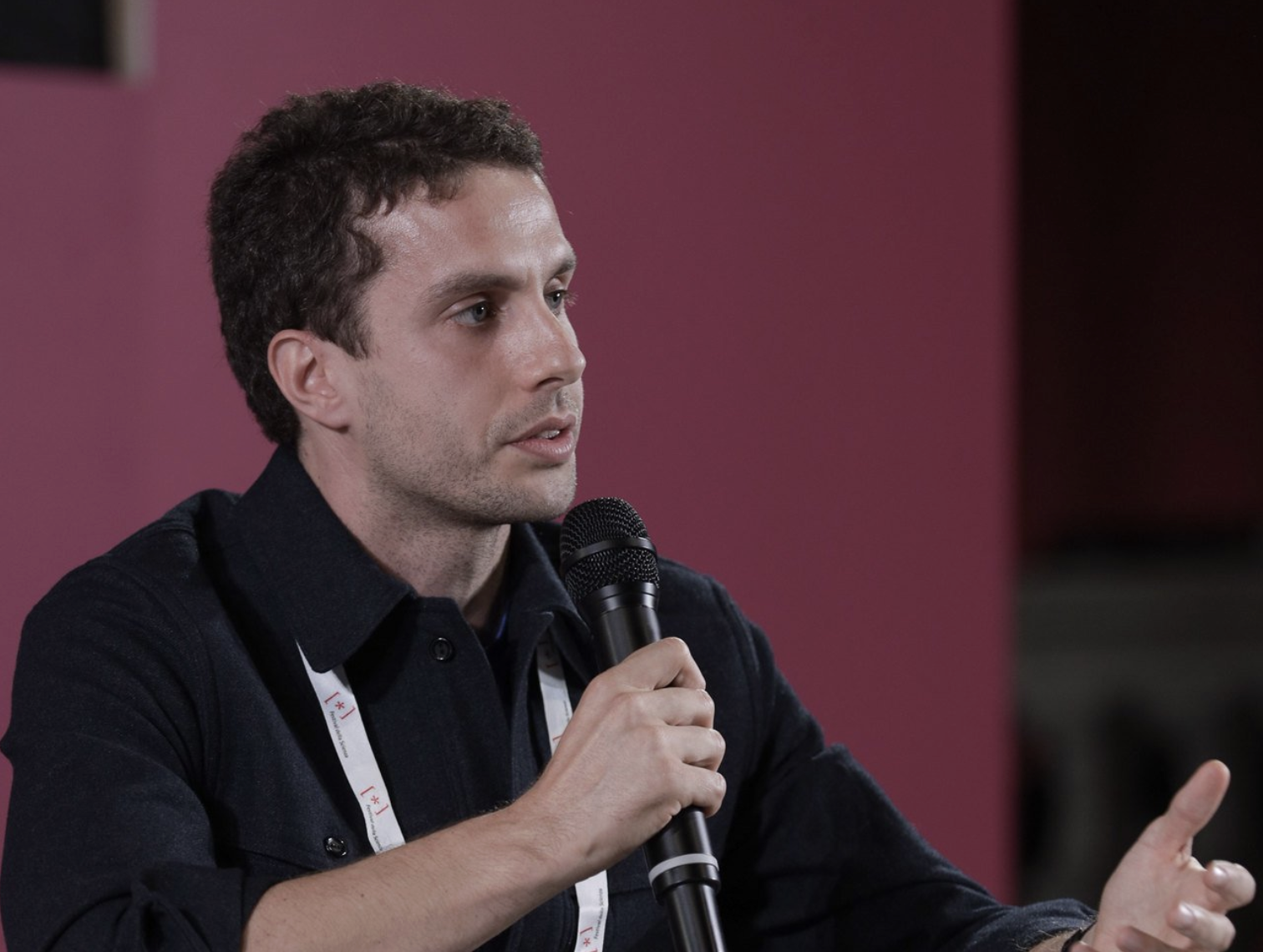GTF Insights: articles, interviews, and comments
Mikko Mattinen, director of the Finnish Digital Agency: “We can build a digital Europe that is not only efficient, but also profoundly human.”
Mikko Mattinen, director of the Finland’s digital agency:
“Digitalisation is close to saturation: most governments have digitized the basics. But many citizens of many countries will tell you: digitization alone does not guarantee better experiences.”
GTF USA: A “Serendipity Factory” for Transforming American Public Service
The GTF founder Igor Lys discusses the launch of the new GTF project: GTF USA — Reinventing American Public Service, based in New York City.
“ I think the inspiration that we can bring from the world to American public service operators, be they mayors, governors, or the federal government, can really improve the lives of many people. It also feels that today is the right moment, when uncertainty is at its highest, but so is the desire to bring rapid, tangible positive change.”
NYC Director/City Chief Procurement Officer Lisa Flores: “Technology enhances efficiency and accountability, but people remain at the heart of public procurement.”
In this interview with the Government Tomorrow Forum Insights, the Director / Commissioner of New York City’s Mayor’s Office of Contract Lisa Flores explores the City’s procurement strategy, its use of technologies, and gives inspiring advice to the procurement leaders for governments and municipalities worldwide.
Three Biggest Challenges for AI Implementation in the Public Sector: GTF
The Government Tomorrow Forum has researched how AI can be integrated into public services and identifies three main challenges that might occur during this process. Among them are social concerns, lack of global AI coordination, and low level of organizational readiness. The GTF team outlined recommendations for overcoming these obstacles, emphasizing the importance of data management and cybersecurity. Governments worldwide can use these insights to navigate AI adoption in the public sector effectively.
How to approach AI on national and regional levels
AI is advancing at rocket speed, but it is crucial to recognize the need for approaches that let AI grow and stay safe. Leading experts in AI give their recommendations on strategies for national and regional levels within the public sector.
Legal framework for AI - where to start, and how to navigate
Rapid AI development requires a robust regulatory framework, and several challenges stand in the way. Discover how AI experts advise to navigate these challenges, and what actions to take for a successful regulatory framework.
Lack of Global Coordination: What Slows Down the Global AI Implementation?
Technological advancements are shaping our world, but it is crucial to recognize their limits as artificial intelligence (AI) evolves. Leading AI experts comment for GTF Insights on the need for global coordination in implementing AI within the public sector to address these challenges effectively.
GTF launches Government Science Hub in New York: uniting academia, policymakers, and experts
Government Tomorrow Forum launches its Government Science Hub in New York, uniting the City’s leadership with international experts and policymakers in preparation of a global research involving leading universities on AI-powered cities and governments
How governments should tackle data privacy concerns adopting AI?
AI systems require a lot of data to be able to develop their capabilities. Systems are fed with data from open sources, however, it includes private information too. How governments can address these issues and build public trust? What guidelines and regulations should governments put in place?
Dr. James Canton: “We Must Manage AI Before It Manages Us”
One of the world’s renowned global futurists and advisors to corporations and governments Dr. James Canton shares his expert opinion on the evolution of AI, general artificial intelligence, the future of this technology, and principles on how governments and corporations can manage it responsibly and safely.
GTF Survey: Why governments might fail AI implementation in the public sphere
We start a new series of articles on GTF Insights based on the recent survey about AI adoption. Conducted with the participation of experts in AI from academia, business, and consultancy sectors, our new survey employed a combination of qualitative and quantitative methods to gauge expert opinions and identify the top challenges for national and regional governments in implementing AI technology in the public sphere and the top application areas to start with for winning fast results and public trust.
Taavi Rõivas, Chairman of AuVe Tech and former Prime Minister of Estonia: “In autonomous transportation, regulations must be tough — but also enabling”
Former Prime Minister of Estonia, now Chairman of the Board of AuVe Tech (leading autonomous bus producer), Taavi Rõivas discusses with Government Tomorrow Forum the main challenges of modern-day mobility. He argues that private-led innovation comes first and regulations must follow, and that the global shift away from privately owned cars is all but inevitable.
Anna-Kaisa Ikonen, Minister of Local and Regional Government of Finland: “Finland’s approach to new technologies is characterized by a commitment to innovation, equality, and public welfare.”
In the interview, Anna-Kaisa Ikonen elaborates on the varying paces of technology adoption across different sectors. She notes that the private sector often adopts technology rapidly due to market pressures, while national governments proceed more cautiously, given the need for thorough testing and regulation. Local governments, on the other hand, face a balance between direct public interaction and constraints like budget and expertise. Ikonen emphasizes the importance of cross-sector collaboration for effective technology integration.
The Four E-Pillars of AI Adoption: a GTF Government AI Handbook suggestion
Building on the Lab discussion, GTF proposes a specific approach to adopting AI by governments of all levels — the Four E-Pillars. The Four E-Pillars — namely, Enable, Embrace, Encourage, and Empower — are an element of a possible universal response to these weaknesses. As a general methodology, they can inspire practical solutions on all levels, from municipal to national.
Leonardo Quattrucci: “I would like for governments to be seen as adopters of technology, rather than just producers of policies and regulations.”
In the Interview, Leonardo Quattrucci discusses the challenges and strategies surrounding the implementation of AI in government. He emphasizes that AI adoption in the public sector is more about organizational change than technology itself.
Sandro Saitta, PhD: “Every AI Project is an R&D Project”
Sandro Saitta, CEO and founder of viadata, lecturer at Business School Lausanne and HEC Lausanne, and a co-founder of the Swiss Association of Analytics, discusses AI adoption with the Government Tomorrow Forum’s Technologies for Governments Lab.
GTF Technologies for Governments Lab first meeting in Tampere, Finland
Experts discussed how AI technologies could revolutionize everything from public service delivery to urban planning. A notable emphasis was placed on the need for governments to not only understand AI's capabilities but also to integrate these technologies thoughtfully and ethically into their operations.
Government Tomorrow Forum and the City of Tampere (Finland) launch the GTF Technologies for Governments Lab
The GTF Technologies for Governments Lab (GTF Tampere Lab) is created to explore and analyze the impact of cutting-edge technologies such as Artificial Intelligence, augmented and virtual reality, robotics, nano, and others, on government services and processes.
Carsten Claus: "Citizens are not marketing material for tourism and investment promotions, but actors with a say"
“As a citizen, you are part of a country's tax base, and there is a lifelong contract issued by one side. And depending on the government, it might not even end when you move away. “
Igor Lys: “Governments are the bearers of the ultimate responsibility in a world full of unpredictable dangers”
“Everyone must play a role, but at the end of the day, everybody turns to the governments for solutions because through power and reach, it is they who are responsible for maintaining stability and ensuring growth and development.”




















